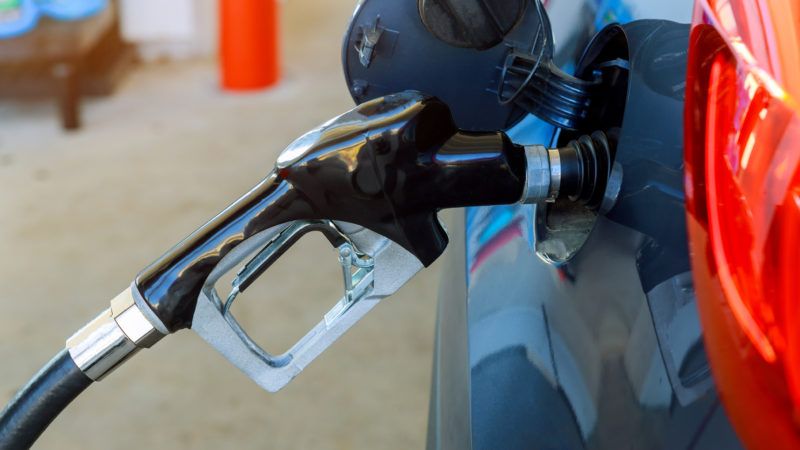Not Even COVID-19 Can Shake New Jersey's Fear of Letting Drivers Pump Their Own Gas
But Oregon grudgingly relents. For now.

Some regulations have been relaxed or waived during the COVID-19 outbreak while others are being enforced with a renewed enthusiasm. Few things illustrate this dichotomy better than the polar opposite ways in which Oregon and New Jersey are handling self-service gas pumps.
Oregon has decided to loosen its restrictions on pumping your own gas. By contrast, New Jersey—the only other state to prohibit motorists from handling gas nozzles—is doubling down on its ban.
On Saturday, Oregon Fire Marshall Jim Walker announced that for the next two weeks the state would suspend some of its self-service gas regulations to cope with staff shortages and assist in social distancing measures.
"During this unprecedented time of state emergency, we need to ensure that critical supply lines for fuels and other basic services remain uninterrupted," said Walker in a press release.
In 2015 and 2017, the Oregon legislature passed modest bills allowing gas stations in rural counties to offer self-service. But a 2019 bill that would have allowed gas stations statewide to designate up to 25 percent of their pumps as self-service went down to defeat.
The state's new rules are hardly laissez faire. Gas stations are required to come up with a social distancing policy and to have an attendant on hand to ensure that any motorists who do pump their own gas comply with it.
Oregon gas stations may only offer unsupervised self-service—the norm in 48 states—if they operate for less than 10 consecutive hours per day and post signs explaining proper fuel pump handling. They must also document that there are no employees available to watch over drivers gassing up and prove that they've gone through a State Fire Marshall audit.
The Oregonian reports that lobbyists for the Oregon Fuel Association asked for the changes to deal with mounting staff shortages at the state's gas stations.
The conditions Oregon has placed on this already marginal deregulation might seem silly. But they are preferable to the approach taken in New Jersey.
The Garden State has steadfastly refused to reform a decades-old state law that allows only state-certified gas station employees to operate fuel pumps. Not even a global pandemic, it seems, will force the state to change course.
"We have no plans to turn our gas stations into self-serve at this time," said Gov. Phil Murphy (D). "Please DO NOT pump your own gas."
PLEASE NOTE: We have no plans to turn our gas stations into self-serve at this time.
Please DO NOT pump your own gas.
— Governor Phil Murphy (@GovMurphy) March 30, 2020
The state's official Twitter account also addressed the controversy, making an ostensibly hilarious reference to the fact that repeat violators of the self-service ban can be fined up to $500.
howdy. i'm the sheriff of NO SELF SERVE GAS
????
⛽️⛽️⛽️
⛽️ ⛽️ ⛽️
???? ⛽️ ⛽️ ????
⛽️ ⛽️
⛽️ ⛽️
???? ????— New Jersey (@NJGov) March 30, 2020
Meanwhile, fears that gas station pumps are a major source of COVID-19 transmission have themselves gone viral on social media. USA Today and Snopes have investigated this claim, finding it to be half-true. Both publications conclude that yes, you can pick up COVID-19 from surfaces, but no, gas station pumps are not more likely to spread the virus than other public, plastic surfaces.
The Centers for Disease Control and Prevention maintains "it may be possible that a person can get COVID-19 by touching a surface or object that has the virus on it and then touching their own mouth, nose, or possibly their eyes, but this is not thought to be the main way the virus spreads."
That would suggest that full-service gas stations, which require drivers to interact with gas station staff, are more likely to spread COVID-19 than self-service outlets.
To be sure, the risk that motorists might pick up the virus from handling pumps isn't zero, but it could be mitigated by drivers wearing gloves or gas station staff sanitizing handles.
Which makes Oregon's limited move to self-service a smart public health decision, as well as a marginal win for liberty. By maintaining its full-service mandate, New Jersey has characteristically chosen to be a less healthy and less free place.
